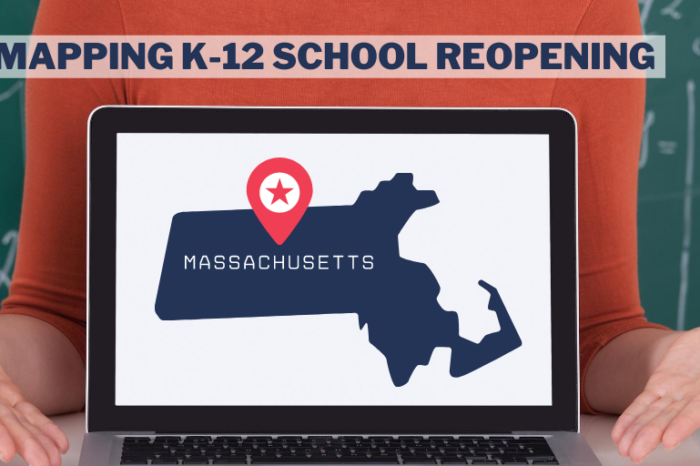Mapping K-12 School Reopening in Massachusetts
As the 2020-21 school year begins for the approximately 950,000 schoolchildren in Massachusetts, our state and country are working to adapt to the unprecedented moment presented by COVID-19. To aid in these efforts, Pioneer Institute is posting a database and map of districts’ reopening plans. Bay State officials have asked local school districts to develop and implement these reopening plans to best suit the local needs and conditions within their communities. As a result, 282 districts have thus far submitted their plans representing 861,352 students across the Commonwealth. A full 200 districts, representing 526,229 students, have decided to reopen with a hybrid of in-person and remote learning options for parents. Fifty-five districts, representing 251,172 students, have opted to reopen fully remote, while 13 districts have chosen an in-person reopening. As of August 18th, 14 districts have yet to post their plans, while vocational-technical and charter schools are currently not included. Pioneer hopes this database and map will serve as helpful resources for parents, teachers, schools leaders, policymakers, and the general public, as everyone works to meet the educational needs of students during the pandemic.
In the application below, you can select from tabs that display a list view or a map view, and on the map tab, you can select options from the key in the top right.
Get Updates on Our Education Research
Recent Posts:















